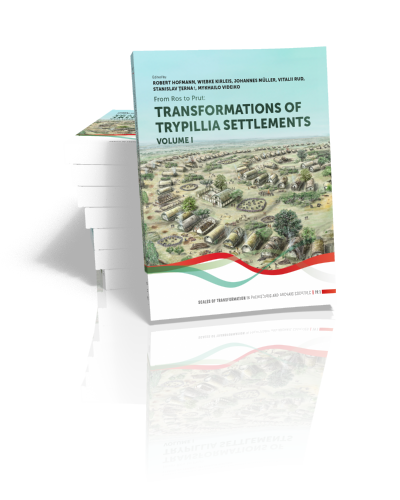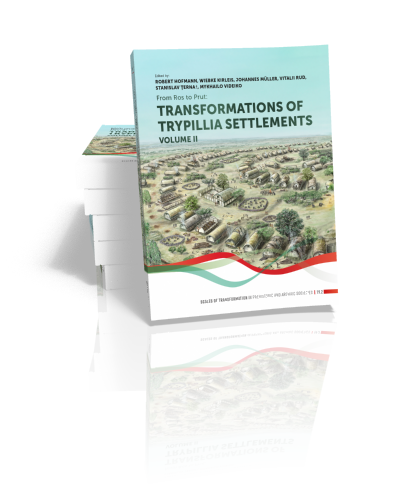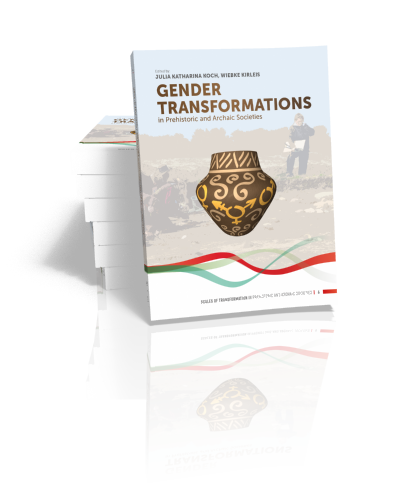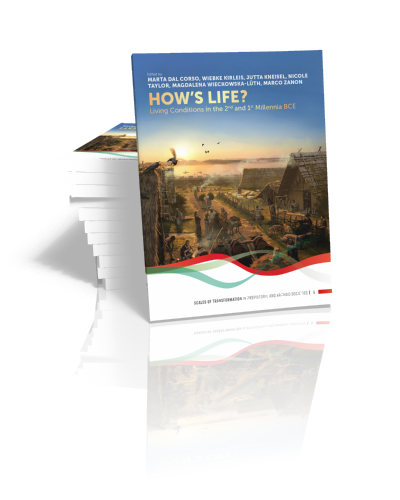Prof. Dr. Wiebke Kirleis

Wiebke Kirleis is professor of environmental archaeology/archaeobotany at Kiel University, Germany. She is deputy director of the Collaborative Research Centre ‘Scales of Transformation: Human–Environmental Interaction in Prehistoric and Archaic Societies’ (CRC 1266, financed by the German Research Foundation/DFG) and a member of the Cluster of Excellence ‘Roots’ at Kiel University.
As an archaeobotanist, she is interested in all kinds of plant-related human activities, be they subsistence strategies or food processing, with their socio-cultural implications, as well as the reconstruction of human–environment interactions in the past. Geographically, her research areas span from northern Europe all way to Indonesia.
Key publications- Wiebke Kirleis and Ulrich Willerding. 2008. Die Pflanzenreste der linienbandkeramischen Siedlung von Rosdorf-Mühlengrund, Ldkr. Göttingen, im südöstlichen Niedersachsen. Prähistorische Zeitschrift 83, 133-178.
- Wiebke Kirleis, Valério D. Pillar and Hermann Behling. 2011. Human–environment interactions in mountain rainforests: palaeo-botanical evidence from central Sulawesi, Indonesia. Vegetation History and Archaeobotany 20, 165-179. DOI: 10.1007/s00334-010-0272-0.
- Wiebke Kirleis, Stefanie Klooß, Helmut Kroll and Johannes Müller. 2012. Crop growing and gathering in the northern German Neolithic: a review supplemented by first new results. Vegetation History and Archaeobotany 21, 221-242. DOI: 10.1007/s00334-011-0328-9.
- Wiebke Kirleis and Stefanie Klooß. 2014. More than simply fallback food? Social context of plant use in the northern German Neolithic, in: Alexandre Chevalier, Elena Marinova, and Leonor Peña-Chocarro (eds.), Plants and people: choices and diversity through time. Oxford: Oxbow Books, 326-335.
- Wiebke Kirleis and Elske Fischer. 2014. Neolithic cultivation of tetraploid free threshing wheat in Denmark and northern Germany: implications for crop diversity and societal dynamics of the Funnel Beaker Culture, in: Felix Bittmann et al. (eds.), Farming in the forest: ecology and economy of fire in prehistoric agriculture. Special issue. Vegetation History and Archaeobotany 23, Supplement 1, 81-96. DOI: 10.1007/s00334-014-0440-8.
- Nicki Whitehouse, Wiebke Kirleis, and Chris Hunt (eds.). 2014. The world reshaped: practices and impacts of early agrarian societies. Special Issue. Journal of Archaeological Science 51, 1-236.
- Wiebke Kirleis and Marta Dal Corso. 2016. Trypillian subsistence economy: animal and plant exploitation, in: Johannes Müller, Kurt Rassman, and Mykhailo Videiko (eds.), Trypillia-megasites and European prehistory 4100–3400 BCE. Themes in Contemporary Archaeology 2. London: Routledge, 195-205.
Books by Wiebke Kirleis
From Ros to Prut (volume 1)
Transformations of Trypillia settlements
Edited by Robert Hofmann, Wiebke Kirleis, Johannes Müller, Vitalii Rud, Stanislav Ţerna†, Mykhailo Videiko | 2025
Pre-dating the urban revolution in Western Asia, a network of agricultural settlements developed in the forest-steppe zone northwest of the Black Sea in the late 5th and first half of the 4th millennium BCE, some…
From Ros to Prut (volume 2)
Transformations of Trypillia settlements
Edited by Robert Hofmann, Wiebke Kirleis, Johannes Müller, Vitalii Rud, Stanislav Ţerna†, Mykhailo Videiko | 2025
Pre-dating the urban revolution in Western Asia, a network of agricultural settlements developed in the forest-steppe zone northwest of the Black Sea in the late 5th and first half of the 4th millennium BCE, some…
Neu (im) Land – erste Bäuer:innen in der Peripherie
Der linienbandkeramische Fundplatz Lietzow 10 im Havelland, Brandenburg
Edited by Wiebke Kirleis, Andrea Hahn-Weishaupt, Mara Weinelt & Susanne Jahns | 2024
Bei einer Ausgrabung im havelländischen Lietzow in Brandenburg wurden jungsteinzeitliche Siedlungsbefunde entdeckt. Sie gehören zu zwei Hofstellen der jüngeren Linienbandkeramik, die um 5100-5000 v. u. Z. datiert. Die in der äußersten Peripherie des damaligen bäuerlichen…
Alles bleibt anders
Transformationsprozesse in Raum und Zeit
Edited by Wiebke Kirleis, Johannes Müller, Anna E. Reuter | 2024
Keine Gesellschaft lebt ewig. Diese Tatsache mag erst einmal für Aufregung sorgen – dabei stellt dies den normalen Verlauf der Geschichte dar, denn Gesellschaften und ihre Umwelten verändern sich ständig. Transformationen bestimmen, wer wir sind,…
Millet and What Else?
The Wider Context of the Adoption of Millet Cultivation in Europe
Edited by Wiebke Kirleis, Marta Dal Corso & Dragana Filipović | 2022
Broomcorn/common/proso millet (Panicum miliaceum) is a cereal crop that originated in East Asia and was transferred westward to Europe, where it was introduced in the mid-2nd millennium BCE, at the height of the Bronze Age.…
Gender Transformations in Prehistoric and Archaic Societies
Edited by Julia Katharina Koch & Wiebke Kirleis | 2019
In which chronological, spatial, and social contexts is gender a relevant social category that is noticeable in the archaeological material? How can transformations in social gender relations and identity be recognized archaeologically? Is the identity…
How's Life?
Living Conditions in the 2nd and 1st Millennia BCE
Edited by Marta Dal Corso, Wiebke Kirleis, Jutta Kneisel, Nicole Taylor, Magdalena Wieckowska-Lüth, Marco Zanon | 2019
The Bronze Age and Early Iron Age saw many developments in metalworking, social structure, food production, nutrition, and diet. At the same time, networks in Europe intensified and human impact on the environment changed in…












